Nerine Dorman's Blog, page 77
July 24, 2013
Life in the Treehaus, July 24, 2013 #update
It’s been a while since I’ve written a little update about my own doings, and it’s more than just a little overdue, I think.
BUT FIRST THE BIG NEWS
I sold my most recent “heart” novel, Dawn’s Bright Talons, to Crossroad Press. Although Crossroad Press specialises in reviving the backlist titles of established authors in digital and audio, it is expanding its line of original titles (this is where I come in). Crossroad Press follows an author-first digital model, and includes international bestsellers William Bayer and Steven Savile, and award-winning authors Melissa Scott and Jo Graham.
A little bit about Dawn’s Bright Talons… It’s a full-on fantasy epic best described as what happens when a pseudo-Victorian colonial setting meets vampiric Machiavellian power struggles. Central to the plot are Michel, a vampire who’s sent to investigate the disappearance of his sire, and why a missing dancer might be at the heart of a secret that threatens his entire race.
We’re looking at a release some time next year, but more on that later when I’ve started the editing process and cover art is underway.
I’ve inadvertently found myself writing (and selling) short fiction this year. So getting this novel contracted made me very happy. I didn’t set out to write more short fiction, but it kinda sorta happened. I see myself chiefly as a novelist, and not a short story writer.
Another big wow so far was selling a short story to Pandemonium for its Ash anthology. I’ll be sharing the spotlight with Richard de Nooy, whose writing I absolutely adore. As well as Charlie Human, who's just released Apocalypse Now Now and who owes me a coffee. And yes. This is a Very Big Thing for little old me. To give you an idea, I tried for many years to write and sell short fiction to paying markets. I lived with the preconception that one needed to have a few short story sales notched on your belt before trying the dreaded debut novel.
The irony? I had to sell my first novel before I seemed to break the seal and started to write marketable short fiction. This just goes to show that there’s no template for writing success. It’s a blank canvas for each writer. Don’t beat yourself upside the head if you don’t have a meteoric rise to fame. It’s different for each of us, and that is how it should be. You are not JK Rowling. You are not George RR Martin. Nor are you Stephen King. And you shouldn’t compare yourself to them either.
And now... drumroll please, the works in progress...
My works in progress are chugging along nicely. I’ve got three short stories out on sub at the moment, which I’m waiting to hear. I’m planning on writing one more short story this year, and that will be for the Midian Unmade call for subs.
On the novel front, I’m currently giving a novella I wrote last year a complete overhaul for a publisher that’s keen to see me turn it into a novel-length work. All I’m able to say is that The Call of the Jackal (AKA Jackal when I tweet about it) is a post-apocalyptic African setting with strong GLBT themes. It’s as close to SF as I’ll get, and I’m thoroughly enjoying the writing process.
Then…during April this year, I wrote a MG fantasy novel. I loved it. My betas loved it. They also had lots of feedback. Then I heard about Strange Chemistry’s open call for subs and I’ve thought why the hell not… So once I’m done writing Jackal, I’ll be going into an intense period of revisions to convert The Guardian’s Wyrd from MG to YA. Since one of my betas already said the tone was more YA than MG, this shouldn’t be too difficult.
EVIL EDITOR STUFF
On the editing front, things are chugging along nicely. I’ve got two announcements about authors contracted to Dark Continents Publishing’s Tales of Darkness and Dismay line (which I direct) that I’ll be making. We’re busy finalising the contract details for The Sea anthology (so I’ll be announcing the final line-up for those too). I’ve also been inundated with entries for this year’s Bloody Parchment short story competition, and I’m wrapping edits for the Dark Harvest anthology.
The BIG editing news is that I’ll be working with Liz Strange again. I first picked her out of the slush pile when I was author-wrangling over at Lyrical Press, and she’s just had her novel, Erased, contracted by Dark Continents. I’m looking forward to sharpening my editing scalpel for her again. You can check out her Dark Kiss Trilogy in the me
anwhile.
Other than that, I’m working with a select few clients on a freelance basis. I’ve grown to know and love these authors dearly, and I’ve seen everything from dubcon capture fantasies with strong BDSM elements through to cosy mysteries and ass-kicking vampires. Never a dull moment. I also do believe that my rates are extremely competitive, so if you’re in the market for an editor, feel free to query me at nerinedorman@gmail.com
You can see a list of some of my recent editing milestones here…
BUT FIRST THE BIG NEWS

I sold my most recent “heart” novel, Dawn’s Bright Talons, to Crossroad Press. Although Crossroad Press specialises in reviving the backlist titles of established authors in digital and audio, it is expanding its line of original titles (this is where I come in). Crossroad Press follows an author-first digital model, and includes international bestsellers William Bayer and Steven Savile, and award-winning authors Melissa Scott and Jo Graham.
A little bit about Dawn’s Bright Talons… It’s a full-on fantasy epic best described as what happens when a pseudo-Victorian colonial setting meets vampiric Machiavellian power struggles. Central to the plot are Michel, a vampire who’s sent to investigate the disappearance of his sire, and why a missing dancer might be at the heart of a secret that threatens his entire race.
We’re looking at a release some time next year, but more on that later when I’ve started the editing process and cover art is underway.
I’ve inadvertently found myself writing (and selling) short fiction this year. So getting this novel contracted made me very happy. I didn’t set out to write more short fiction, but it kinda sorta happened. I see myself chiefly as a novelist, and not a short story writer.
Another big wow so far was selling a short story to Pandemonium for its Ash anthology. I’ll be sharing the spotlight with Richard de Nooy, whose writing I absolutely adore. As well as Charlie Human, who's just released Apocalypse Now Now and who owes me a coffee. And yes. This is a Very Big Thing for little old me. To give you an idea, I tried for many years to write and sell short fiction to paying markets. I lived with the preconception that one needed to have a few short story sales notched on your belt before trying the dreaded debut novel.
The irony? I had to sell my first novel before I seemed to break the seal and started to write marketable short fiction. This just goes to show that there’s no template for writing success. It’s a blank canvas for each writer. Don’t beat yourself upside the head if you don’t have a meteoric rise to fame. It’s different for each of us, and that is how it should be. You are not JK Rowling. You are not George RR Martin. Nor are you Stephen King. And you shouldn’t compare yourself to them either.
And now... drumroll please, the works in progress...
My works in progress are chugging along nicely. I’ve got three short stories out on sub at the moment, which I’m waiting to hear. I’m planning on writing one more short story this year, and that will be for the Midian Unmade call for subs.
On the novel front, I’m currently giving a novella I wrote last year a complete overhaul for a publisher that’s keen to see me turn it into a novel-length work. All I’m able to say is that The Call of the Jackal (AKA Jackal when I tweet about it) is a post-apocalyptic African setting with strong GLBT themes. It’s as close to SF as I’ll get, and I’m thoroughly enjoying the writing process.
Then…during April this year, I wrote a MG fantasy novel. I loved it. My betas loved it. They also had lots of feedback. Then I heard about Strange Chemistry’s open call for subs and I’ve thought why the hell not… So once I’m done writing Jackal, I’ll be going into an intense period of revisions to convert The Guardian’s Wyrd from MG to YA. Since one of my betas already said the tone was more YA than MG, this shouldn’t be too difficult.
EVIL EDITOR STUFF
On the editing front, things are chugging along nicely. I’ve got two announcements about authors contracted to Dark Continents Publishing’s Tales of Darkness and Dismay line (which I direct) that I’ll be making. We’re busy finalising the contract details for The Sea anthology (so I’ll be announcing the final line-up for those too). I’ve also been inundated with entries for this year’s Bloody Parchment short story competition, and I’m wrapping edits for the Dark Harvest anthology.
The BIG editing news is that I’ll be working with Liz Strange again. I first picked her out of the slush pile when I was author-wrangling over at Lyrical Press, and she’s just had her novel, Erased, contracted by Dark Continents. I’m looking forward to sharpening my editing scalpel for her again. You can check out her Dark Kiss Trilogy in the me
anwhile.
Other than that, I’m working with a select few clients on a freelance basis. I’ve grown to know and love these authors dearly, and I’ve seen everything from dubcon capture fantasies with strong BDSM elements through to cosy mysteries and ass-kicking vampires. Never a dull moment. I also do believe that my rates are extremely competitive, so if you’re in the market for an editor, feel free to query me at nerinedorman@gmail.com
You can see a list of some of my recent editing milestones here…
Published on July 24, 2013 10:51
July 23, 2013
Thin Air by Storm Constantine #review
Title:
Thin Air
Author: Storm Constantine
As with all Storm Constantine’s tales, the book you start reading is not quite the one that finishes. If you expect Thin Air to remain a mystery rooted in the material world, then you’re going to have your hopes dashed. Myth, magic and other realms are never far away in Constantine’s writing.
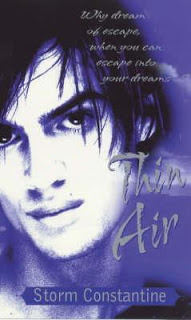 Jay is a somewhat jaded music journalist who finds love in the most unlikeliest places – with her famous rockstar partner, Dex. And for many years she thinks she has the perfect life – him with his touring and recording of successful albums, and she with her career writing editorial for magazines.
Jay is a somewhat jaded music journalist who finds love in the most unlikeliest places – with her famous rockstar partner, Dex. And for many years she thinks she has the perfect life – him with his touring and recording of successful albums, and she with her career writing editorial for magazines.
As it turns out, this is all a sham. Dex has secrets, and when he vanishes one day without a trace, she begins to realise that he’s been holding out on her all these years. You can only imagine the sense of betrayal that must be. Yet though she is damaged, Jay is resilient, and she picks herself up, dusts herself off and moves on.
But as it turns out, there are powerful people who believe that Jay is still in contact with Dex, who has run out supposedly with his last recordings that his fabulously powerful and wealthy masters want. There is more to Dex and his music that meet the eye, and Jay finds herself inexorably drawn into a world where reality is a pliant, somewhat fickle thing.
In a way Thin Air is a fairy tale, but mostly it’s a kind of urban myth that gradually unfolds and envelops readers in otherness. Jay and Dex are but two players who, though not wholly in control of their destinies, are still important lynchpins in a power struggle between opposing forces. It’s difficult for me to find fault with Constantine’s writing, but if anything, I did feel as if Jay and Dex were almost too passive in how they attained their goals. But that really didn’t bother me because, hell, Constantine is a magician.
Her writing is dreamy and fluid, and she masterfully weaves her artistry to create a milieu laced with archetypes that is tangible – that one could easily imagine exists on the other side of a hedgerow or just beyond a copse of poplars.
Author: Storm Constantine
As with all Storm Constantine’s tales, the book you start reading is not quite the one that finishes. If you expect Thin Air to remain a mystery rooted in the material world, then you’re going to have your hopes dashed. Myth, magic and other realms are never far away in Constantine’s writing.
 Jay is a somewhat jaded music journalist who finds love in the most unlikeliest places – with her famous rockstar partner, Dex. And for many years she thinks she has the perfect life – him with his touring and recording of successful albums, and she with her career writing editorial for magazines.
Jay is a somewhat jaded music journalist who finds love in the most unlikeliest places – with her famous rockstar partner, Dex. And for many years she thinks she has the perfect life – him with his touring and recording of successful albums, and she with her career writing editorial for magazines.As it turns out, this is all a sham. Dex has secrets, and when he vanishes one day without a trace, she begins to realise that he’s been holding out on her all these years. You can only imagine the sense of betrayal that must be. Yet though she is damaged, Jay is resilient, and she picks herself up, dusts herself off and moves on.
But as it turns out, there are powerful people who believe that Jay is still in contact with Dex, who has run out supposedly with his last recordings that his fabulously powerful and wealthy masters want. There is more to Dex and his music that meet the eye, and Jay finds herself inexorably drawn into a world where reality is a pliant, somewhat fickle thing.
In a way Thin Air is a fairy tale, but mostly it’s a kind of urban myth that gradually unfolds and envelops readers in otherness. Jay and Dex are but two players who, though not wholly in control of their destinies, are still important lynchpins in a power struggle between opposing forces. It’s difficult for me to find fault with Constantine’s writing, but if anything, I did feel as if Jay and Dex were almost too passive in how they attained their goals. But that really didn’t bother me because, hell, Constantine is a magician.
Her writing is dreamy and fluid, and she masterfully weaves her artistry to create a milieu laced with archetypes that is tangible – that one could easily imagine exists on the other side of a hedgerow or just beyond a copse of poplars.
Published on July 23, 2013 13:27
July 22, 2013
Cobweb Bride (Cobweb Bride Trilogy #1) by Vera Nazarian #review
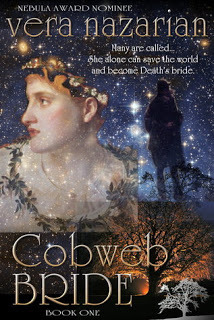 Title:
Cobweb Bride (Cobweb Bride Trilogy #1)
Title:
Cobweb Bride (Cobweb Bride Trilogy #1)
Author: Vera Nazarian
Publisher: Norilana Books, 2013
Author Vera Nazarian once again masterfully evokes a historical setting with sheer class. What I always appreciate about her writing is her ability to make me think I’ve picked up a title written at the turn of the century, which is deeply satisfying – and I love quality fiction.
Cobweb Bride is set in a fictitious European empire during the Renaissance, and is a tale spun from numerous points of view. Death has been personified à la Pratchett and Gaiman, and presently resides in a mysterious keep situated in the northern forests. Only now he refuses to do his work until his Cobweb Bride is brought to him. In addition, there’s a not-so-small problem. Until his demand is met, and a suitable bride is found, no one’s going to die.
So, whether folks are hacked into bloody bits during combat, animals are butchered or crops are harvested, no one and nothing will die, and it doesn’t take much of a stretch of the imagination to see how the implications of this shift in reality will play out. Take a
moment, pause, and think about it. Not so nice, hey? Even if you starve to death, you’re going to be caught in a limbo state, unable to cross over.
So, while her grandmother lies in a state of a perpetual death rattle, Persephone – or Percy, as she likes to be called – sets off with a bunch of other young women to seek Death’s keep in the dead of winter. Sounds easy? Not so much when there’s an undead duke seeking to take advantage of the sad state of affairs, and the Cobweb Bride is not so easy to find as one would expect.
If there was one nitpick I’d have it’s the huge amount of love Nazarian has for the word “suddenly”. She uses it. A lot. So much so that it jumped out of the pages and grabbed me by the eyeballs and shook me around a bit. But that didn’t make me want to throw the Kindle out the window.
And I felt for her characters, and admit my favourite was Beltain Chidair, the somewhat reluctant Black Knight. Somehow know that there was a real person under that scary black armour made it for me. (Okay, I’m a not-so-secret Darth Vader fangrrrl.) A nice whiff of romance hinted at there, but I’m not going to spoil it for you if you’re yet to dip into the story. And my heart bled for the princess. I’m not going to say exactly what happens to her, but she shows surprising strength of character despite all the challenges she faces.
Yes, the story is a bit slow-moving at the start, but I think it’s necessary so that readers can ease into the semi-fantasy/historical setting and the cast of characters are introduced. This is a beautifully crafted tale by an author who knows and loves the English language. If you have a love for classical historical fiction and fairy tales, then give this one a try.
Published on July 22, 2013 12:01
July 19, 2013
Inkarna on sale now (and hear me read an excerpt)
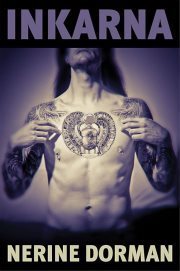 So, David, my wonderful publisher over at Dark Continents Publishing, has convinced me to do a reading from Inkarna and send him the file to upload on YouTube. So you get to hear my fabulous "sethfrican" accent and I even speak a little Afrikaans too.
So, David, my wonderful publisher over at Dark Continents Publishing, has convinced me to do a reading from Inkarna and send him the file to upload on YouTube. So you get to hear my fabulous "sethfrican" accent and I even speak a little Afrikaans too.For those of you who're yet to pick up Inkarna , it's been getting rave reviews, people adore me and want to vote me in as the world's benevolent dictator. LOL! Okay maybe not that drastic. But the book has done well, and the majority of the feedback has been overwhelmingly positive (thank you).
At time of posting (July 20, 2013) it's on special at Amazon for only $2.99, so if you're yet to pick up a copy, I won't complain too vociferously. ;-)
Published on July 19, 2013 23:31
July 17, 2013
Philosophy: Who Needs It by Ayn Rand
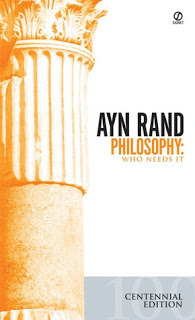 Title:
Philosophy: Who needs it
Title:
Philosophy: Who needs it
Author: Ayn Rand
Publisher: Signet, 1984
While I’m a big fan of Ayn Rand’s works I am, by equal measure, aware of the fact that she can and does froth a little when she hits particular topics. While my own knowledge of philosophy is still very sketchy at best, I did find this slim volume to be a somewhat useful supplement to her other titles that I’ve read, though don’t feel as if this collection of essays covered any fresh ground.
She examines why we need philosophy (of course we do) and the realisation that this is an integral part of our existence if we are to live rational, moral lives. Most importantly she stands for taking pride in one’s own labours and not settling for anything less than the best.
She makes a big deal about freedom, and personal freedom to think and trade as one wishes without feeling ashamed of one’s strengths. Also, that one should deal with truths and that which is, instead of that which one imagines something *should* be.
Mostly, Rand encourages people to think for themselves without blindly following conventions, and to encourage the development and application to reason. She advocates intellectual honesty – in admitting what one knows and what one does not know, then working from there. She advocates sticking to one’s convictions and looking at living a life that has integrity on a basic level. And not, thankfully, to proselytise.
She is harshly critical of some of the philosophic and political efforts of her day, and it’s somewhat frightening to see how some of her observations are very much apt for this day and age.
I agree that Rand is not the be-all and end-all of philosophy, but she still makes some very valid points which are still useful. That being said… I still need to broaden my reading tastes to encompass other philosophers, so I’ll hold back from the Kant-bashing the way Rand does it for now!
Published on July 17, 2013 12:15
July 16, 2013
Going another round: Crazy editor lady still at the helm of Bloody Parchment
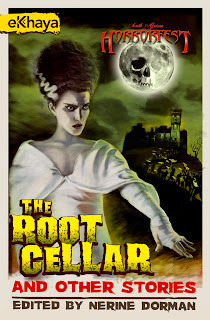 So yeah, basically I'm doing this SA HorrorFest Bloody Parchment short story competition thing again this year. Why? This is my way of paying it forward to genre fiction authors who're looking to make a name for themselves. And hell, it's also about having a product that we can be proud of: the annual Bloody Parchment anthology which takes its name from the winning stories.
So yeah, basically I'm doing this SA HorrorFest Bloody Parchment short story competition thing again this year. Why? This is my way of paying it forward to genre fiction authors who're looking to make a name for themselves. And hell, it's also about having a product that we can be proud of: the annual Bloody Parchment anthology which takes its name from the winning stories.For two years running we've been blessed to have the support of eKhaya, the electronic imprint of Random House Struik. But now with the Penguin Random House merger, eKhaya is closing its doors. But not to worry. Dark Continents Publishing has stepped forward, and they'll be taking care of the admin.
So, what's in it for the finalists? All finalists receive a flat rate of $20 plus one paperback contributor copy of the anthology. We do not charge an entry fee. Money flows to the authors, not the other way round. In addition, the winner will receive a comprehensive round of edits on a novel-length work, as well as a manuscript assessment. The two runners-up will each receive a comprehensive round of edits on a first chapter of a novel or a short story.
Each year I also gather a panel of kick-ass judges. So, though I do the initial grading through the slush pile, the panel of judges (who are all involved in the publishing industry one way or another) will be the ones to rate and make the final selection.
Am I crazy to take this project on? Perhaps. But I find this far more exciting than watching TV, and it's ultimately so satisfying to unleash yet another kick-ass anthology out in the wilds. And I love my authors. You're all adorable and squishy, even if you're a pack of little divas at times. So, if you fancy you'd like to give this writing of horror a shot, go check out the submission guidelines here.
(Yes, I now I use the word kick-ass a lot. It happens.)
Published on July 16, 2013 13:12
July 15, 2013
Taking flight with Marguerite Poland's Birds
This interview with Marguerite Poland appeared in various local papers, and is now live on IOL.co.za. If you're looking for a perfect gift, then do consider picking up a copy of her Taken Captive By Birds. It has some of the most amazing illustrations I've seen in a long time.
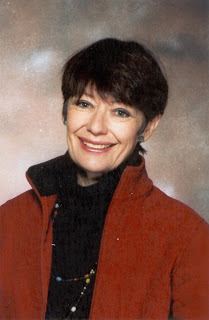 Marguerite Poland is an author who’s known not only for her children’s books and adult fiction, but also her non-fiction. She co-wrote the well-received
The Abundant Herds: Celebration of the Nguni Cattle of the Zulu People
(Fernwood, 2003) with Professor David Hammond (illustrated by Leigh Voigt).
Marguerite Poland is an author who’s known not only for her children’s books and adult fiction, but also her non-fiction. She co-wrote the well-received
The Abundant Herds: Celebration of the Nguni Cattle of the Zulu People
(Fernwood, 2003) with Professor David Hammond (illustrated by Leigh Voigt).
And last year saw the release of Taken Captive by Birds (Penguin) which offers readers a glimpse into her past, growing up in the rural Eastern Cape. Not only is the book a literary treat laced with nostalgia, but it is also lusciously illustrated by Craig Ivor.
Explaining how the book came into being, Poland relates: “I was in the middle of writing a novel but, due to family commitments, had too little time to sustain it.
“I decided to write something for my daughters – vignettes of childhood, things that meant something to me. I guess I have reached that age! Taken Captive by Birds is the result.”
(Read rest of article here).
 Marguerite Poland is an author who’s known not only for her children’s books and adult fiction, but also her non-fiction. She co-wrote the well-received
The Abundant Herds: Celebration of the Nguni Cattle of the Zulu People
(Fernwood, 2003) with Professor David Hammond (illustrated by Leigh Voigt).
Marguerite Poland is an author who’s known not only for her children’s books and adult fiction, but also her non-fiction. She co-wrote the well-received
The Abundant Herds: Celebration of the Nguni Cattle of the Zulu People
(Fernwood, 2003) with Professor David Hammond (illustrated by Leigh Voigt).And last year saw the release of Taken Captive by Birds (Penguin) which offers readers a glimpse into her past, growing up in the rural Eastern Cape. Not only is the book a literary treat laced with nostalgia, but it is also lusciously illustrated by Craig Ivor.
Explaining how the book came into being, Poland relates: “I was in the middle of writing a novel but, due to family commitments, had too little time to sustain it.
“I decided to write something for my daughters – vignettes of childhood, things that meant something to me. I guess I have reached that age! Taken Captive by Birds is the result.”
(Read rest of article here).
Published on July 15, 2013 11:07
July 11, 2013
Five minutes with Glen Mehn, 2012 SA HorrorFest Bloody Parchment finalist #horror
Today's visitor is none other than Glen Mehn, a finalist from the 2012 SA HorrorFest Bloody Parchment short story competition. His story, The Next Big Thing, appears in this year's anthology, The Root Cellar and Other Stories, which you can find all the buy links your little black heart desires here.
So, Glen, what planted the seed for your story?
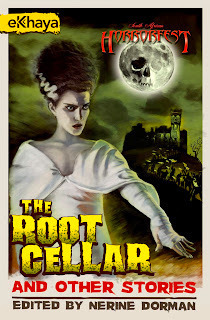 I'm fascinated by the changing face(s) of cities - particularly the cool, quirky districts that start out dangerous and then turn into the poshest areas of the city, chasing out what made it cool in the first place. There's a vampiristic or general blood-sucking of the life of what you look for in a city that happens, and it's terrible. I've lived through it in certain areas in New Orleans, San Francisco, and London - there was even a sniff of it in part of Kampala that I lived in, as it was close-ish to the airport and a really old Buganda area that was dirt cheap, but as all the NGOs, international companies, and embassies made rents rise to near London-levels in the traditional expat areas, lots of people started moving in, and the crazy nightclubs started shifting.
I'm fascinated by the changing face(s) of cities - particularly the cool, quirky districts that start out dangerous and then turn into the poshest areas of the city, chasing out what made it cool in the first place. There's a vampiristic or general blood-sucking of the life of what you look for in a city that happens, and it's terrible. I've lived through it in certain areas in New Orleans, San Francisco, and London - there was even a sniff of it in part of Kampala that I lived in, as it was close-ish to the airport and a really old Buganda area that was dirt cheap, but as all the NGOs, international companies, and embassies made rents rise to near London-levels in the traditional expat areas, lots of people started moving in, and the crazy nightclubs started shifting.
What are some of the themes you treated in your tale?
The changing face of cities. Seduction, and what it means. The transience of friendship and what it means to be a friend, mostly. I was also interested in the idea of inevitability - people talk about cities changing and an early draft of the story was set up as a statement of fate and inevitability. I question whether you can't improve an area without killing it. I hope so.
What are the hallmarks of a great horror/dark fantasy author and story?
People. Get me inside their heads and I'll be terrified along with them. Make me feel the knife, touch the scar tissue, and make my heart skip a beat. The strange but just plausible. There's a story by Kaaron Warren in Stories of the Smoke where the ubiquity of the urban pigeon is suggested in terrifying ways. Make me see the corners of my mind that I don't pay attention to.
How do you approach your creative process?
 I try to think a lot, and then get down and write, mostly early in the morning or after work, and I try to get words on the page (or screen - I go back and forth between long handed chicken scratch and typing into a computer) before I can stop thinking about them. Some of my best work has been writing longhand first thing in the morning, before having a wee, toothbrush, or anything. And it's come after writing over and over things like "I have nothing in my mind I am super tired I don't know what to say but I have promised to put down at least 1000 words before coffee so there's 25 there".
I try to think a lot, and then get down and write, mostly early in the morning or after work, and I try to get words on the page (or screen - I go back and forth between long handed chicken scratch and typing into a computer) before I can stop thinking about them. Some of my best work has been writing longhand first thing in the morning, before having a wee, toothbrush, or anything. And it's come after writing over and over things like "I have nothing in my mind I am super tired I don't know what to say but I have promised to put down at least 1000 words before coffee so there's 25 there".
I also try to think a lot, and shove ideas into my head. I help people create start-ups for my day job and I think that real innovation happens between specific disciplines, in the places where you're not supposed to play.
What are you working on now?
A short which is about the earliest days of Jazz (and this almost-forgotten cornetist who probably invented Jazz music, which means he's the grandfather of hip hop, rock, and most of th emusic of the 20th century), as well as a couple of novels - both of which I don't want to talk too much about except that one is an inside-out love story and the other one is an attack on the chosen one.
If you're one them folks who hang out on Goodreads, be sure to add The Root Cellar and Other Stories on Goodreads. And, if you're looking to be part of the next anthology, go read our submission guidelines here.
So, Glen, what planted the seed for your story?
 I'm fascinated by the changing face(s) of cities - particularly the cool, quirky districts that start out dangerous and then turn into the poshest areas of the city, chasing out what made it cool in the first place. There's a vampiristic or general blood-sucking of the life of what you look for in a city that happens, and it's terrible. I've lived through it in certain areas in New Orleans, San Francisco, and London - there was even a sniff of it in part of Kampala that I lived in, as it was close-ish to the airport and a really old Buganda area that was dirt cheap, but as all the NGOs, international companies, and embassies made rents rise to near London-levels in the traditional expat areas, lots of people started moving in, and the crazy nightclubs started shifting.
I'm fascinated by the changing face(s) of cities - particularly the cool, quirky districts that start out dangerous and then turn into the poshest areas of the city, chasing out what made it cool in the first place. There's a vampiristic or general blood-sucking of the life of what you look for in a city that happens, and it's terrible. I've lived through it in certain areas in New Orleans, San Francisco, and London - there was even a sniff of it in part of Kampala that I lived in, as it was close-ish to the airport and a really old Buganda area that was dirt cheap, but as all the NGOs, international companies, and embassies made rents rise to near London-levels in the traditional expat areas, lots of people started moving in, and the crazy nightclubs started shifting.What are some of the themes you treated in your tale?
The changing face of cities. Seduction, and what it means. The transience of friendship and what it means to be a friend, mostly. I was also interested in the idea of inevitability - people talk about cities changing and an early draft of the story was set up as a statement of fate and inevitability. I question whether you can't improve an area without killing it. I hope so.
What are the hallmarks of a great horror/dark fantasy author and story?
People. Get me inside their heads and I'll be terrified along with them. Make me feel the knife, touch the scar tissue, and make my heart skip a beat. The strange but just plausible. There's a story by Kaaron Warren in Stories of the Smoke where the ubiquity of the urban pigeon is suggested in terrifying ways. Make me see the corners of my mind that I don't pay attention to.
How do you approach your creative process?
 I try to think a lot, and then get down and write, mostly early in the morning or after work, and I try to get words on the page (or screen - I go back and forth between long handed chicken scratch and typing into a computer) before I can stop thinking about them. Some of my best work has been writing longhand first thing in the morning, before having a wee, toothbrush, or anything. And it's come after writing over and over things like "I have nothing in my mind I am super tired I don't know what to say but I have promised to put down at least 1000 words before coffee so there's 25 there".
I try to think a lot, and then get down and write, mostly early in the morning or after work, and I try to get words on the page (or screen - I go back and forth between long handed chicken scratch and typing into a computer) before I can stop thinking about them. Some of my best work has been writing longhand first thing in the morning, before having a wee, toothbrush, or anything. And it's come after writing over and over things like "I have nothing in my mind I am super tired I don't know what to say but I have promised to put down at least 1000 words before coffee so there's 25 there".I also try to think a lot, and shove ideas into my head. I help people create start-ups for my day job and I think that real innovation happens between specific disciplines, in the places where you're not supposed to play.
What are you working on now?
A short which is about the earliest days of Jazz (and this almost-forgotten cornetist who probably invented Jazz music, which means he's the grandfather of hip hop, rock, and most of th emusic of the 20th century), as well as a couple of novels - both of which I don't want to talk too much about except that one is an inside-out love story and the other one is an attack on the chosen one.
If you're one them folks who hang out on Goodreads, be sure to add The Root Cellar and Other Stories on Goodreads. And, if you're looking to be part of the next anthology, go read our submission guidelines here.
Published on July 11, 2013 12:28
July 10, 2013
J Damask and her wolves of Singapore #wolves
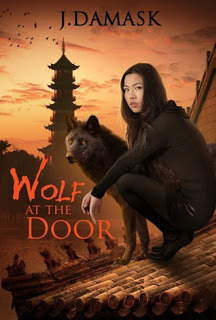 J Damask is one of the authors of whom I have very fond memories of my time editing at Lyrical Press. Miss Damask has since gone on to carve a wonder-filled career writing about her wolf shifters of Singapore. She recently celebrated the release of Heart of Fire, the third in her series of adventures of Jan Xu. But today I'm handing over to her as she talks about getting her debut title, Wolf at the Door, into print. And I'm sure you'll agree that the cover art is absolutely stunning.
J Damask is one of the authors of whom I have very fond memories of my time editing at Lyrical Press. Miss Damask has since gone on to carve a wonder-filled career writing about her wolf shifters of Singapore. She recently celebrated the release of Heart of Fire, the third in her series of adventures of Jan Xu. But today I'm handing over to her as she talks about getting her debut title, Wolf at the Door, into print. And I'm sure you'll agree that the cover art is absolutely stunning. What made her writing stand out from the others in the slush pile? Beautiful story-telling and a wonderfully realised non-Western setting written in an authentic Asian voice. J Damask makes me believe in fairy tales again.
* * * *
The journey has been long, complicated and at times, frustrating. But Wolf At The Door is finally out in paperback form. At the moment, I am still marvelling at how things have turned out and damn it, I have a print book.
Nerine who edited Wolf and encouraged me a lot has given me the opportunity to talk about... well… the book. What should I talk about? That it’s about wolves in Singapore. Chinese wolves in the form of humans, mingling with the human population. It had been a personal challenge to write about Chinese wolves and I was deeply satisfied to see my dream took form and become real. I wanted to see something different from the US/white/European shifter types – I wanted to see something I could easily resonate with. I wanted to see a heroine that didn’t fit the current UF/paranormal trend: a mother with children, Chinese, and – yes – a wolf. Not a werewolf, but a four-pawed wolf.
Wolf was first released as an ebook under Lyrical Press. Then came the decision for me to look for a print publisher. I tried looking up on local Singaporean printers and they were all expensive. I plucked up enough courage and approached Gayla Drummond, publisher of Katarr Kanticles Press. I was ecstatic when she said ‘Yes!’.
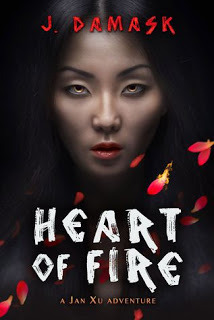
Then came the hard work of re-formatting the novel and finding a cover artist to create a new cover. Help arrived in the form of Sarah Coldheart who did the lay out and Nathalia Suellen who did the breathtakingly gorgeous cover. Insert a series of to-and-froing with page proofs and stuff… and we were good to go.
So, Wolf was a result of the concerted efforts from my heroes: Nerine (who edited and made Wolf into a lean mean story), Sarah (who did the formatting and lay out), Nathalia (who is an immensely gifted artist and who did the cover) and Gayla (who gave Wolf a home). Many grateful thank yous, my ladies!
Now, get your hands, claws and talons on the book!
Createspace
Amazon
Jan Xu and the Myriad have their own Facebook page
J. Damask (aka Joyce Chng) can also be found at Twitter (@jolantru) and at her blog (A Wolf’s Tale)
Published on July 10, 2013 12:56
July 8, 2013
The Write Stuff: Interview with Lauren Beukes
I recently had the pleasure of interviewing author Lauren Beukes, and the piece was run in the Pretoria News, among others.
So, while I'm not going to reproduce the entire article here (the link is below) here are the opening lines, and you can continue on the IOL.co.za site this piece links to...
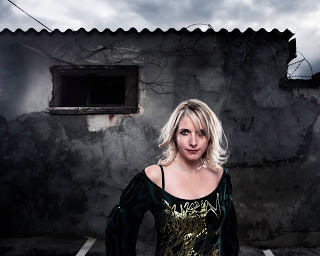
Lauren Beukes’s name has been on the lips of most bookish folk here in South Africa ever since she won the Arthur C Clarke Award for her novel, Zoo City , in 2011, as well as an entire host of awards and nominations.
More recently, her long-awaited, The Shining Girls , made quite a number of ripples in the literary pond. Beukes has been enjoying her success, which has had her attending various launches not only in South Africa, but abroad.
She says: “It has been a little mental lately around the launch of The Shining Girls, which has meant running between interviews and launches and events in Johannesburg, Cape Town and London and, next up, the United States.”
The Shining Girls offers quite a departure from Beukes’s usual offerings of edgy tales set in South Africa – and the novel’s creation required a lot of research. (Continue reading here)
So, while I'm not going to reproduce the entire article here (the link is below) here are the opening lines, and you can continue on the IOL.co.za site this piece links to...

Lauren Beukes’s name has been on the lips of most bookish folk here in South Africa ever since she won the Arthur C Clarke Award for her novel, Zoo City , in 2011, as well as an entire host of awards and nominations.
More recently, her long-awaited, The Shining Girls , made quite a number of ripples in the literary pond. Beukes has been enjoying her success, which has had her attending various launches not only in South Africa, but abroad.
She says: “It has been a little mental lately around the launch of The Shining Girls, which has meant running between interviews and launches and events in Johannesburg, Cape Town and London and, next up, the United States.”
The Shining Girls offers quite a departure from Beukes’s usual offerings of edgy tales set in South Africa – and the novel’s creation required a lot of research. (Continue reading here)
Published on July 08, 2013 11:11



